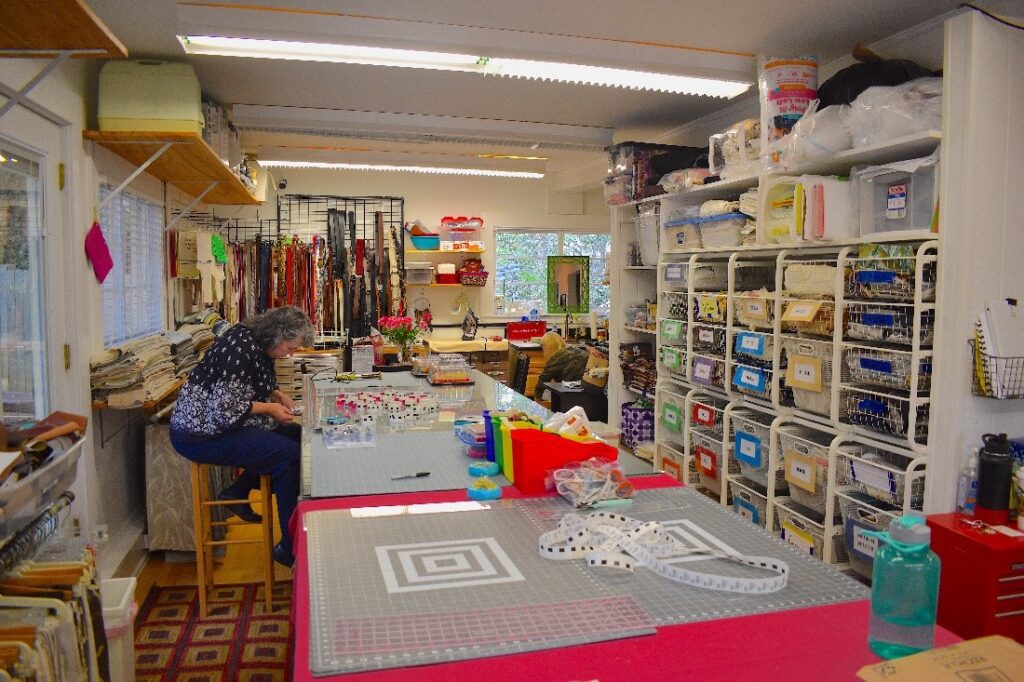
Peace of Thread: Empowering Refugee Women to Succeed
Peace of Thread, located in Clarkston, Georgia, is a nonprofit that has been transforming the lives of refugee women for over 12 years. The organization employs and empowers refugee women by teaching them how to sew, helping them learn English, and enabling them to work from home while earning a part-time income.
Known as the South’s Ellis Island, Clarkston has been a place where war refugees have been settling for decades now. A city of about 12,000 people in DeKalb County, it’s also known as “the most diverse square mile in America.”
Starting in the 1970s with the first wave of Southeast Asian migrants fleeing Saigon during the Vietnam War, the small city eventually became one of 190 designated resettlement communities in the U.S.
A global tapestry of refugees have made Clarkston their first stop on their American journeys from more than 100 ethnic groups – Somalis fleeing civil war, Bhutanese forced out through ethnic cleansing, and many others from Africa, Asia and Europe: Eritreans, Liberians, Croatians and Cambodians to name a few.
The ethnic diversity of this DeKalb County city – and the unique needs of this population – have inspired nonprofits and others to provide a safe landing for these vulnerable populations.
For Peace of Thread, the goal is to help refugee women make a living which in turn provides its own form of safety.
The opportunity to sew and work from home provides refugees with the ability to have an income, make friends, build community and most importantly, learn English, while still caring for young children or other dependents at home.
“They don’t have to have any sewing skill,” when they start the program, says Denise Smith, Peace of Thread founder and CEO. They come to the training center in Clarkston for four to six months and learn every pattern.
“When they complete the program, they get a sewing machine and a big box filled with every color of thread and notion she might need, a sewing machine, a small table, a good light, an iron and ironing board so that she can sew in her home,” Smith says. “Our goal is to get her home. It gives women freedom to have a good part time job – it brings them more language, more love and more safety.”
The result of all this training is that the women then sew one-of-a-kind purses, bags, and accessories using upcycled materials. The finished products are sold in an online store and in Peace of Thread retail locations in Clarkston, Chattanooga, Tenn., and boutique stores in Lawrenceville, Georgia, Tennessee and Cape Charles, Virginia. The online store features wallets, handbags, totes and other unique items priced from under $20 to $300. Fifty percent of the cost of each product sold goes back to the woman who made it.
Stephanie Marbut, Peace of Thread’s director of operations, says, “Our mission is to support and help refugees in any way we can from the first moment they step foot in America.” Since 2012, more than 100 women have gone through the training program.
The nonprofit also is committed to “building relationships with the women, providing them with the mentoring and connections they need to succeed,” Marbut adds. Peace of Thread pairs volunteers with each refugee artisan to bridge the gap between cultures, transfer life and business skills, build confidence, and affirm dignity and value. Also, through employment with Peace of Thread, the artisans have access to counseling, free medical care and free ESL classes in addition to the job training.
Typically, the women work two days a week with flexible hours. For newcomers, three hours of training is provided daily on-site. This ensures that they can balance work and family responsibilities while also learning new skills.
Looking to the future, Peace of Thread has a new location in Chattanooga, Tennessee. The nonprofit’s goal is to expand across the country, providing more refugee women with the opportunity to learn new skills and build a better life for themselves and their families.
“We believe in sewing peace wherever we are and with whoever we connect with,” says Smith, who adds what working with refugee women has taught her. “People who fled war loved their countries – they teach us as much as we teach them. The most important thing is to create dignity.”
If you’re interested in learning more about the unique diversity of places like Clarkston in DeKalb County or how you could start your own business, please contact us.
